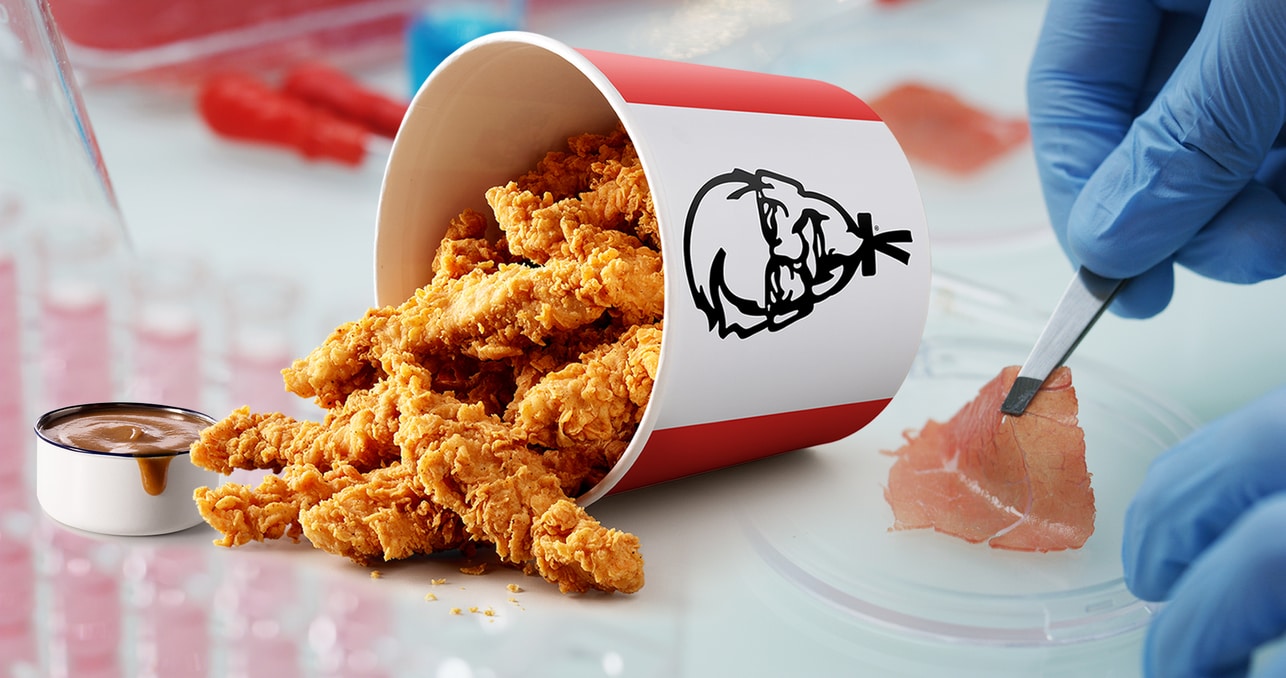KFC Is First Major Chain To Announce Research Into Lab-Grown Meat

With the search for more sustainable meat options in fast food expanding, KFC has taken a pivotal step in getting major chains to consider lab-grown meat as a potential solution.

KFC’s global team announced in a press release that they were looking into making nuggets that utilize chicken cells as part of the process, making them the first major to chain to publicly announce that cellular agriculture could be an option for them.
These nuggets are being developed in conjunction with 3D Bioprinting Solutions, a Russia-based company known for creating prosthetic organs. The resulting nuggets will use some plant material, but also use cells from chickens to “reproduce the taste and texture of chicken meat almost without involving animals in the process,” according to the release.
KFC will provide spice blends and other ingredient needs to make the nuggets taste like their signature chicken, while 3D Bioprinting will come up with the blend of meat/plant cells needed to get the texture down right.
Lab-grown meat, also known as laboratory-produced, cellular, or cultured meat, has been proposed as an alternative to factory farm-raised meat because it has the potential to scale to global meat consumption levels while reducing environmental costs.
While companies claim that lab-made meat reduces land use, water use, and methane emissions, research has also shown that the technology could increase carbon dioxide emissions. All of this research is still speculative, however, since none of these products have been produced at a commercial scale yet.
Several companies in the United States, including Memphis Meats and JUST, have begun making breakthroughs on lab-grown meatballs, nuggets, and more in recent years. Although there’s still regulatory issues surrounding the technology, the appetite for lab-grown animal products has increased globally, with meat giants like Tyson backing brands working on cellular meat products.
KFC plans to test a prototype of this collaboration in Moscow as early as Fall of 2020.






















